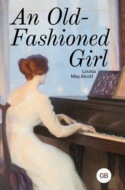Kitabı oku: «The Dead Secret / Тайна», sayfa 2
“You had better rest for a little in your own room,” said the doctor, giving her a candle. “Stop, though,” he continued, after a moment's reflection. “I am going to break the sad news to your master, and I may find that he is anxious to hear any last words that Mrs. Treverton may have spoken in your presence. Perhaps you had better come with me, and wait while I go into Captain Treverton's room.”
“No! no! – oh, not now – not now, for God's sake!” Speaking those words in low, quick, pleading tones, and drawing back affrightedly to the door, Sarah disappeared without waiting a moment to be spoken to again.
“A strange woman!” said the doctor, addressing the nurse. “Follow her, and see where she goes to, in case she is wanted and we are obliged to send for her. I will wait here until you come back.”
When the nurse returned she had nothing to report but that she had followed Sarah Leeson to her own bedroom, had seen her enter it, had listened outside, and had heard her lock the door.
“A strange woman!” repeated the doctor. “One of the silent, secret sort.”
“One of the wrong sort,” said the nurse. “She is always talking to herself, and that is a bad sign, in my opinion. I distrusted her, Sir, the very first day I entered the house.”
Chapter II
The Child
The instant Sarah Leeson had turned the key of her bedroom door, she took the sheet of note-paper from its place of concealment in her bosom – shuddering, when she drew it out, as if the mere contact of it hurt her – placed it open on her little dressing-table, and fixed her eyes eagerly on the lines which the note contained. At first they swam and mingled together before her. She pressed her hands over her eyes, for a few minutes, and then looked at the writing again.
The characters were clear now – vividly clear, and, as she fancied, unnaturally large and near to view. There was the address: “To my Husband;” there the first blotted line beneath, in her dead mistress's handwriting; there the lines that followed, traced by her own pen, with the signature at the end – Mrs. Treverton's first, and then her own. The whole amounted to but very few sentences, written on one perishable fragment of paper, which the flame of a candle would have consumed in a moment. Yet there she sat, reading, reading, reading, over and over again; never touching the note, except when it was absolutely necessary to turn over the first page; never moving, never speaking, never raising her eyes from the paper. As a condemned prisoner might read his death-warrant, so did Sarah Leeson now read the few lines which she and her mistress had written together not half an hour since.
The secret of the paralyzing effect of that writing on her mind lay, not only in itself, but in the circumstances which had attended the act of its production.
The oath which had been proposed by Mrs. Treverton under no more serious influence than the last caprice of her disordered faculties, stimulated by confused remembrances of stage words and stage situations, had been accepted by Sarah Leeson as the most sacred and inviolable engagement to which she could bind herself. The threat of enforcing obedience to her last commands from beyond the grave, which the mistress had uttered in mocking experiment on the superstitious fears of the maid, now hung darkly over the weak mind of Sarah, as a judgment which might descend on her, visibly and inexorably, at any moment of her future life. When she roused herself at last, and pushed away the paper and rose to her feet, she stood quite still for an instant, before she ventured to look behind her. When she did look, it was with an effort and a start, with a searching distrust of the empty dimness in the remoter corners of the room.
Her old habit of talking to herself began to resume its influence, as she now walked rapidly backward and forward, sometimes along the room and sometimes across it. She repeated incessantly such broken phrases as these: “How can I give him the letter? – Such a good master; so kind to us all. – Why did she die, and leave it all to me? – I can't bear it alone; it's too much for me.” While reiterating these sentences, she vacantly occupied herself in putting things about the room in order, which were set in perfect order already. All her looks, all her actions, betrayed the vain struggle of a weak mind to sustain itself under the weight of a heavy responsibility. She arranged and re-arranged the cheap china ornaments on her chimney-piece a dozen times over – put her pin-cushion first on the looking-glass, then on the table in front of it – changed the position of the little porcelain dish and tray on her wash-hand-stand, now to one side of the basin, and now to the other. Throughout all these trifling actions the natural grace, delicacy, and prim neat-handedness of the woman still waited mechanically on the most useless and aimless of her occupations of the moment. She knocked nothing down, she put nothing awry; her footsteps at the fastest made no sound – the very skirts of her dress were kept as properly and prudishly composed as if it was broad daylight and the eyes of all her neighbors were looking at her.
From time to time the sense of the words she was murmuring confusedly to herself changed. Sometimes they disjointedly expressed bolder and more self-reliant thoughts. Once they seemed to urge her again to the dressing-table and the open letter on it, against her own will. She read aloud the address, “To my Husband,” and caught the letter up sharply, and spoke in firmer tones. “Why give it to him at all? Why not let the secret die with her and die with me, as it ought? Why should he know it? He shall not know it!”
Saying those last words, she desperately held the letter within an inch of the flame of the candle. At the same moment the white curtain over the window before her stirred a little, as the freshening air found its way through the old-fashioned, ill-fitting sashes. Her eye caught sight of it, as it waved gently backward and forward. She clasped the letter suddenly to her breast with both hands, and shrank back against the wall of the room, her eyes still fastened on the curtain with the same blank look of horror which they had exhibited when Mrs. Treverton had threatened to claim her servant's obedience from the other world.
“Something moves,” she gasped to herself, in a breathless whisper. “Something moves in the room.”
The curtain waved slowly to and fro for the second time. Still fixedly looking at it over her shoulder, she crept along the wall to the door.
“Do you come to me already?” she said, her eyes riveted on the curtain while her hand groped over the lock for the key. “Before your grave is dug? Before your coffin is made? Before your body is cold?”
She opened the door and glided into the passage; stopped there for a moment, and looked back into the room.
“Rest!” she said. “Rest, mistress – he shall have the letter.”
The staircase-lamp guided her out of the passage. Descending hurriedly, as if she feared to give herself time to think, she reached Captain Treverton's study, on the ground-floor, in a minute or two. The door was wide open, and the room was empty.
After reflecting a little, she lighted one of the chamber-candles standing on the hall-table, at the lamp in the study, and ascended the stairs again to her master's bedroom. After repeatedly knocking at the door and obtaining no answer, she ventured to go in. The bed had not been disturbed, the candles had not been lit – to all appearance the room had not even been entered during the night.
There was but one other place to seek him – the chamber in which his wife lay dead. Could she summon the courage to give him the letter there? She hesitated a little – then whispered, “I must! I must!”
The direction she now compelled herself to take led her a little way down the stairs again. She descended very slowly this time, holding cautiously by the banisters, and pausing to take breath almost at every step. The door of what had been Mrs. Treverton's bedroom was opened, when she ventured to knock at it, by the nurse, who inquired, roughly and suspiciously, what she wanted there.
“I want to speak to my master.”
“Look for him somewhere else. He was here half an hour ago. He is gone now.”
“Do you know where he has gone?”
“No. I don't pry into other people's goings and comings. I mind my own business.”
With that discourteous answer, the nurse closed the door again. Just as Sarah turned away from it she looked toward the inner end of the passage. The door of the nursery was situated there. It was ajar, and a dim gleam of candle-light was flickering through it.
She went in immediately, and saw that the candle-light came from an inner room, usually occupied, as she well knew, by the nursery-maid and by the only child of the house of Treverton – a little girl named Rosamond, aged, at that time, nearly five years.
“Can he be there? – in that room, of all the rooms in the house!”
Quickly as the thought arose in her mind, Sarah raised the letter (which she had hitherto carried in her hand) to the bosom of her dress, and hid it for the second time, exactly as she had hidden it on leaving her mistress's bedside.
She then stole across the nursery on tiptoe toward the inner room. The entrance to it, to please some caprice of the child's, had been arched, and framed with trellis-work, gayly colored, so as to resemble the entrance to a summer-house. Two pretty chintz curtains, hanging inside the trellis-work, formed the only barrier between the day-room and the bedroom. One of these was looped up, and toward the opening thus made Sarah now advanced, after cautiously leaving her candle in the passage outside.
The first object that attracted her attention in the child's bedroom was the figure of the nurse-maid, leaning back, fast asleep, in an easy-chair by the window. Venturing, after this discovery, to look more boldly into the room, she next saw her master sitting with his back toward her, by the side of the child's crib. Little Rosamond was awake, and was standing up in bed with her arms round her father's neck. One of her hands held over his shoulder the doll that she had taken to bed with her, the other was twined gently in his hair. The child had been crying bitterly, and had now exhausted herself, so that she was only moaning a little from time to time, with her head laid wearily on her father's bosom.
The tears stood thick in Sarah's eyes as they looked on her master and on the little hands that lay round his neck. She lingered by the raised curtain, heedless of the risk she ran, from moment to moment, of being discovered and questioned – lingered until she heard Captain Treverton say soothingly to the child:
“Hush, Rosie, dear! hush, my own love! Don't cry any more for poor mamma. Think of poor papa, and try to comfort him.”
Simple as the words were, quietly and tenderly as they were spoken, they seemed instantly to deprive Sarah Leeson of all power of self-control. Reckless whether she was heard or not, she turned and ran into the passage as if she had been flying for her life. Passing the candle she had left there, without so much as a look at it, she made for the stairs, and descended them with headlong rapidity to the kitchen-floor. There one of the servants who had been sitting up met her, and, with a face of astonishment and alarm, asked what was the matter.
“I'm ill – I'm faint – I want air,” she answered, speaking thickly and confusedly. “Open the garden door, and let me out.”
The man obeyed, but doubtfully, as if he thought her unfit to be trusted by herself.
“She gets stranger than ever in her ways,” he said, when he rejoined his fellow-servant, after Sarah had hurried past him into the open air. “Now our mistress is dead, she will have to find another place, I suppose. I, for one, sha'n't break my heart when she's gone. Shall you?”
Chapter III
The Hiding of the Secret
The cool, sweet air in the garden, blowing freshly over Sarah's face, seemed to calm the violence of her agitation. She turned down a side walk, which led to a terrace and overlooked the church of the neighboring village.
The daylight out of doors was clear already. The misty auburn light that goes before sunrise was flowing up, peaceful and lovely, behind a line of black-brown moorland, over all the eastern sky. The old church, with the hedge of myrtle and fuchsia growing round the little cemetery in all the luxuriance which is only seen in Cornwall, was clearing and brightening to view, almost as fast as the morning firmament itself. Sarah leaned her arms heavily on the back of a garden-seat, and turned her face toward the church. Her eyes wandered from the building itself to the cemetery by its side, rested there, and watched the light growing warmer and warmer over the lonesome refuge where the dead lay at rest.
“Oh, my heart! my heart!” she said. “What must it be made of not to break?”
She remained for some time leaning on the seat, looking sadly toward the church-yard, and pondering over the words which she had heard Captain Treverton say to the child. They seemed to connect themselves, as every thing else now appeared to connect itself in her mind, with the letter that had been written on Mrs. Treverton's death-bed. She drew it from her bosom once more, and crushed it up angrily in her fingers.
“Still in my hands! still not seen by any eyes but mine!” she said, looking down at the crumpled pages. “Is it all my fault? If she was alive now – if she had seen what I saw, if she had heard what I heard in the nursery – could she expect me to give him the letter?”
Her mind was apparently steadied by the reflection which her last words expressed. She moved away thoughtfully from the garden-seat, crossed the terrace, descended some wooden steps, and followed a shrubbery path which led round by a winding track from the east to the north side of the house.
This part of the building had been uninhabited and neglected for more than half a century past. In the time of Captain Treverton's father the whole range of the north rooms had been stripped of their finest pictures and their most valuable furniture, to assist in redecorating the west rooms, which now formed the only inhabited part of the house, and which were amply sufficient for the accommodation of the family and of any visitors who came to stay with them. The mansion had been originally built in the form of a square, and had been strongly fortified. Of the many defenses of the place, but one now remained – a heavy, low tower (from which and from the village near, the house derived its name of Porthgenna Tower), standing at the southern extremity of the west front. The south side itself consisted of stables and out-houses, with a ruinous wall in front of them, which, running back eastward at right angles, joined the north side, and so completed the square which the whole outline of the building represented.
The outside view of the range of north rooms, from the weedy, deserted garden below, showed plainly enough that many years had passed since any human creature had inhabited them. The window-panes were broken in some places, and covered thickly with dirt and dust in others. Here, the shutters were closed – there, they were only half opened. The untrained ivy, the rank vegetation growing in fissures of the stone-work, the festoons of spiders' webs, the rubbish of wood, bricks, plaster, broken glass, rags, and strips of soiled cloth, which lay beneath the windows, all told the same tale of neglect. Shadowed by its position, this ruinous side of the house had a dark, cold, wintry aspect, even on the sunny August morning when Sarah Leeson strayed into the deserted northern garden. Lost in the labyrinth of her own thoughts, she moved slowly past flower-beds, long since rooted up, and along gravel walks overgrown by weeds; her eyes wandering mechanically over the prospect, her feet mechanically carrying her on wherever there was a trace of a footpath, lead where it might.
The shock which the words spoken by her master in the nursery had communicated to her mind, had set her whole nature, so to speak, at bay, and had roused in her, at last, the moral courage to arm herself with a final and desperate resolution. Wandering more and more slowly along the pathways of the forsaken garden, as the course of her ideas withdrew her more and more completely from all outward things, she stopped insensibly on an open patch of ground, which had once been a well-kept lawn, and which still commanded a full view of the long range of uninhabited north rooms.
“What binds me to give the letter to my master at all?” she thought to herself, smoothing out the crumpled paper dreamily in the palm of her hand. “My mistress died without making me swear to do that. Can she visit it on me from the other world, if I keep the promises I swore to observe, and do no more? May I not risk the worst that can happen, so long as I hold religiously to all that I undertook to do on my oath?”
She paused here in reasoning with herself – her superstitious fears still influencing her out of doors, in the daylight, as they had influenced her in her own room, in the time of darkness. She paused – then fell to smoothing the letter again, and began to recall the terms of the solemn engagement which Mrs. Treverton had forced her to contract.
What had she actually bound herself to do? Not to destroy the letter, and not to take it away with her if she left the house. Beyond that, Mrs. Treverton's desire had been that the letter should be given to her husband. Was that last wish binding on the person to whom it had been confided? Yes. As binding as an oath? No.
As she arrived at that conclusion, she looked up.
At first her eyes rested vacantly on the lonely, deserted north front of the house; gradually they became attracted by one particular window exactly in the middle, on the floor above the ground – the largest and the gloomiest of all the row; suddenly they brightened with an expression of intelligence. She started; a faint flush of color flew into her cheeks, and she hastily advanced closer to the wall of the house.
The panes of the large window were yellow with dust and dirt, and festooned about fantastically with cobwebs. Below it was a heap of rubbish, scattered over the dry mould of what might once have been a bed of flowers or shrubs. The form of the bed was still marked out by an oblong boundary of weeds and rank grass. She followed it irresolutely all round, looking up at the window at every step – then stopped close under it, glanced at the letter in her hand, and said to herself abruptly —
“I'll risk it!”
As the words fell from her lips, she hastened back to the inhabited part of the house, followed the passage on the kitchen-floor which led to the housekeeper's room, entered it, and took down from a nail in the wall a bunch of keys, having a large ivory label attached to the ring that connected them, on which was inscribed, “Keys of the North Rooms.”
She placed the keys on a writing-table near her, took up a pen, and rapidly added these lines on the blank side of the letter which she had written under her mistress's dictation —
“If this paper should ever be found (which I pray with my whole heart it never may be), I wish to say that I have come to the resolution of hiding it, because I dare not show the writing that it contains to my master, to whom it is addressed. In doing what I now propose to do, though I am acting against my mistress's last wishes, I am not breaking the solemn engagement which she obliged me to make before her on her death-bed. That engagement forbids me to destroy this letter, or to take it away with me if I leave the house. I shall do neither – my purpose is to conceal it in the place, of all others, where I think there is least chance of its ever being found again. Any hardship or misfortune which may follow as a consequence of this deceitful proceeding on my part, will fall on myself. Others, I believe in my conscience, will be the happier for the hiding of the dreadful Secret which this letter contains.”
She signed those lines with her name – pressed them hurriedly over the blotting-pad that lay with the rest of the writing materials on the table – took the note in her hand, after first folding it up – and then, snatching at the bunch of keys, with a look all round her as if she dreaded being secretly observed, left the room. All her actions since she had entered it had been hasty and sudden; she was evidently afraid of allowing herself one leisure moment to reflect.
On quitting the housekeeper's room, she turned to the left, ascended a back staircase, and unlocked a door at the top of it. A cloud of dust flew all about her as she softly opened the door; a mouldy coolness made her shiver as she crossed a large stone hall, with some black old family portraits hanging on the walls, the canvases of which were bulging out of the frames. Ascending more stairs, she came upon a row of doors, all leading into rooms on the first floor of the north side of the house.
She knelt down, putting the letter on the boards beside her, opposite the key-hole of the fourth door she came to after reaching the top of the stairs, peered in distrustfully for an instant, then began to try the different keys till she found one that fitted the lock. She had great difficulty in accomplishing this, from the violence of her agitation, which made her hands tremble to such a degree that she was hardly able to keep the keys separate one from the other. At length she succeeded in opening the door. Thicker clouds of dust than she had yet met with flew out the moment the interior of the room was visible; a dry, airless, suffocating atmosphere almost choked her as she stooped to pick up the letter from the floor. She recoiled from it at first, and took a few steps back toward the staircase. But she recovered her resolution immediately.
“I can't go back now!” she said, desperately, and entered the room.
She did not remain in it more than two or three minutes. When she came out again her face was white with fear, and the hand which had held the letter when she went into the room held nothing now but a small rusty key.
After locking the door again, she examined the large bunch of keys which she had taken from the housekeeper's room, with closer attention than she had yet bestowed on them. Besides the ivory label attached to the ring that connected them, there were smaller labels, of parchment, tied to the handles of some of the keys, to indicate the rooms to which they gave admission. The particular key which she had used had one of these labels hanging to it. She held the little strip of parchment close to the light, and read on it, in written characters faded by time —
“The Myrtle Room.”
The room in which the letter was hidden had a name, then! A prettily sounding name that would attract most people, and keep pleasantly in their memories. A name to be distrusted by her, after what she had done, on that very account.
She took her housewife from its usual place in the pocket of her apron, and, with the scissors which it contained, cut the label from the key. Was it enough to destroy that one only? She lost herself in a maze of useless conjecture; and ended by cutting off the other labels, from no other motive than instinctive suspicion of them.
Carefully gathering up the strips of parchment from the floor, she put them, along with the little rusty key which she had brought out of the Myrtle Room, in the empty pocket of her apron. Then, carrying the large bunch of keys in her hand, and carefully locking the doors that she had opened on her way to the north side of Porthgenna Tower, she retraced her steps to the housekeeper's room, entered it without seeing any body, and hung up the bunch of keys again on the nail in the wall.
Fearful, as the morning hours wore on, of meeting with some of the female servants, she next hastened back to her bedroom. The candle she had left there was still burning feebly in the fresh daylight. When she drew aside the window-curtain, after extinguishing the candle, a shadow of her former fear passed over her face, even in the broad daylight that now flowed in upon it. She opened the window, and leaned out eagerly into the cool air.
Whether for good or for evil, the fatal Secret was hidden now – the act was done. There was something calming in the first consciousness of that one fact. She could think more composedly, after that, of herself, and of the uncertain future that lay before her.
Under no circumstances could she have expected to remain in her situation, now that the connection between herself and her mistress had been severed by death. She knew that Mrs. Treverton, in the last days of her illness, had earnestly recommended her maid to Captain Treverton's kindness and protection, and she felt assured that the wife's last entreaties, in this as in all other instances, would be viewed as the most sacred of obligations by the husband. But could she accept protection and kindness at the hand of the master whom she had been accessory to deceiving, and whom she had now committed herself to deceiving still? The bare idea of such baseness was so revolting, that she accepted, almost with a sense of relief, the one sad alternative that remained – the alternative of leaving the house immediately.
And how was she to leave it? By giving formal warning, and so exposing herself to questions which would be sure to confuse and terrify her? Could she venture to face her master again, after what she had done – to face him, when his first inquiries would refer to her mistress, when he would be certain to ask her for the last mournful details, for the slightest word that had been spoken during the death-scene that she alone had witnessed? She started to her feet, as the certain consequences of submitting herself to that unendurable trial all crowded together warningly on her mind, took her cloak from its place on the wall, and listened at her door in sudden suspicion and fear. Had she heard footsteps? Was her master sending for her already?
No; all was silent outside. A few tears rolled over her cheeks as she put on her bonnet, and felt that she was facing, by the performance of that simple action, the last, and perhaps the hardest to meet, of the cruel necessities in which the hiding of the Secret had involved her. There was no help for it. She must run the risk of betraying every thing, or brave the double trial of leaving Porthgenna Tower, and leaving it secretly.
Secretly – as a thief might go? Without a word to her master? without so much as one line of writing to thank him for his kindness and to ask his pardon? She had unlocked her desk, and had taken from it her purse, one or two letters, and a little book of Wesley's Hymns, before these considerations occurred to her. They made her pause in the act of shutting up the desk. “Shall I write?” she asked herself, “and leave the letter here, to be found when I am gone?”
A little more reflection decided her in the affirmative. As rapidly as her pen could form the letters, she wrote a few lines addressed to Captain Treverton, in which she confessed to having kept a secret from his knowledge which had been left in her charge to divulge; adding, that she honestly believed no harm could come to him, or to any one in whom he was interested, by her failing to perform the duty intrusted to her; and ended by asking his pardon for leaving the house secretly, and by begging, as a last favor, that no search might ever be made for her. Having sealed this short note, and left it on her table, with her master's name written outside, she listened again at the door; and, after satisfying herself that no one was yet stirring, began to descend the stairs at Porthgenna Tower for the last time.
At the entrance of the passage leading to the nursery she stopped. The tears which she had restrained since leaving her room began to flow again. Urgent as her reasons now were for effecting her departure without a moment's loss of time, she advanced, with the strangest inconsistency, a few steps toward the nursery door. Before she had gone far, a slight noise in the lower part of the house caught her ear and instantly checked her further progress.
While she stood doubtful, the grief at her heart – a greater grief than any she had yet betrayed – rose irresistibly to her lips, and burst from them in one deep gasping sob. The sound of it seemed to terrify her into a sense of the danger of her position, if she delayed a moment longer. She ran out again to the stairs, reached the kitchen-floor in safety, and made her escape by the garden door which the servant had opened for her at the dawn of the morning.
On getting clear of the premises at Porthgenna Tower, instead of taking the nearest path over the moor that led to the high-road, she diverged to the church; but stopped before she came to it, at the public well of the neighborhood, which had been sunk near the cottages of the Porthgenna fishermen. Cautiously looking round her, she dropped into the well the little rusty key which she had brought out of the Myrtle Room; then hurried on, and entered the church-yard. She directed her course straight to one of the graves, situated a little apart from the rest. On the head-stone were inscribed these words:
SACRED TO THE MEMORY
OF
Hugh Polwheal,
AGED 26 YEARS.
HE MET WITH HIS DEATH
THROUGH THE FALL OF A ROCK
IN
PORTHGENNA MINE,
DECEMBER 17TH, 1823.
Gathering a few leaves of grass from the grave, Sarah opened the little book of Wesley's Hymns which she had brought with her from the bedroom of Porthgenna Tower, and placed the leaves delicately and carefully between the pages. As she did this, the wind blew open the title-page of the Hymns, and displayed this inscription on it, written in large, clumsy characters —”Sarah Leeson, her book. The gift of Hugh Polwheal.”
Having secured the blades of grass between the pages of the book, she retraced her way toward the path leading to the high-road. Arrived on the moor, she took out of her apron pocket the parchment labels that had been cut from the keys, and scattered them under the furze-bushes.








